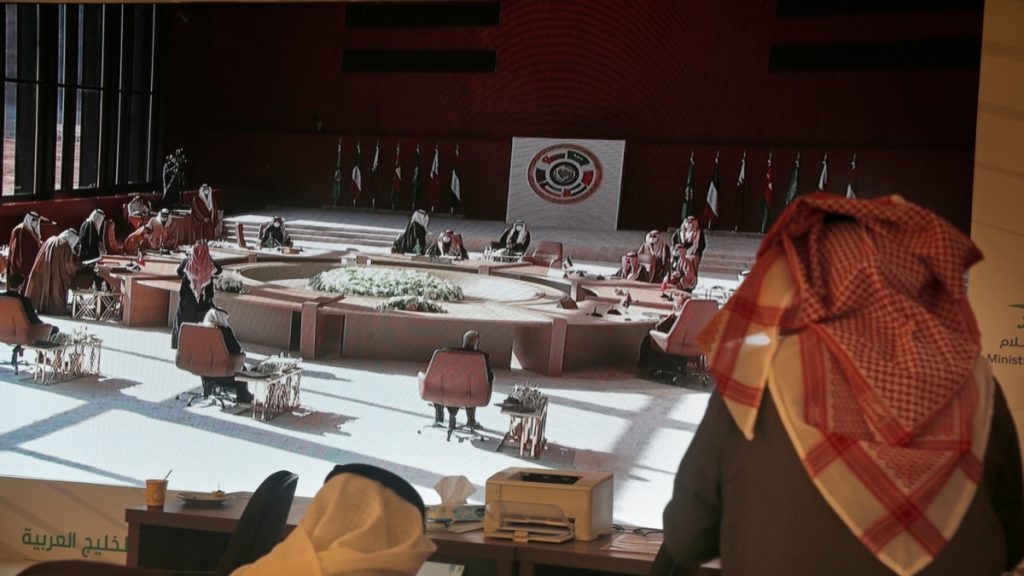A ‘Middle East NATO’? Why Iran is closely watching Biden’s regional trip

Biden’s itinerary includes just two countries, Iran sees an Arab-Israeli military plan as a The claim by the US this week that Iran may be providing drones to Russia may be used by the Biden administration to strengthen the case for a Middle East defense pact against Iran, said Aniseh Bassiri, senior research fellow at the London-based Royal United Services Institute (RUSI). “The timing of this information [on Iranian drone sales] is interesting,” she told CNN’s Becky Anderson on Tuesday. “We know that the US, together with Israel, is trying to shape this defense pact, and I think a lot of the focus of this pact is the capability that the countries have when it comes to drones. Whether there is interest in the GCC (Gulf Cooperation Council) countries is another question,” she said. “There is plenty of Israeli propaganda that goes into marketing and promoting such a deal,” said Abdulla. “Logistically, it is not very easy to do.” The digest Majority of Saudi youth see Palestinian cause as a priority, survey finds Three-quarters of Saudi youth believe addressing the Palestinian-Israeli conflict should be a priority for the Arab world, according to the 13th edition of the Arab Youth Survey. The survey also found that over 90% of Saudi youth, who form nearly two-thirds of the country’s population, see the US as an ally. Background: The findings were announced on Thursday ahead of Biden’s trip to Saudi Arabia. The survey comes amid strained US-Saudi ties and an effort by the Biden administration to strengthen relations between Israel and Saudi Arabia. Why it matters: The survey shows the importance Saudi youth attach to the Palestinian issue as Riyadh moves closer to Israel. It also suggests that despite the tensions between the Biden administration and Saudi Arabia, Saudi youths continue to see the US as an ally. Netanyahu says Biden agrees a military strike will be necessary if Iran develops nuclear weapons Israel’s former Prime Minister Benjamin Netanyahu on Thursday suggested that President Biden agrees that a military strike on Iran will be needed if Tehran develops nuclear weapons. “I told him that without a credible military option, Iran cannot be stopped, and if Iran is not deterred, this military option will need to be carried out. This is my position. I really hope it is also the American position,” said Netanyahu. “He [Biden] said he agrees with these words, and I was glad to hear it,” he added. Background: Netanyahu’s claim comes as he tries to make a comeback as prime minister amid a political deadlock in Israel. During his trip to Jerusalem, Biden renewed his pledge to defend Israel against Iran. In an interview with Israel’s Channel 12 News on Wednesday, the President was asked if his commitment to ensure Iran never acquired nuclear weapons meant he would use force against Iran. “If that was the last resort, yes,” Biden answered. Why it matters: Israel has been touting a “regional air defense alliance” led by the US, and which would predominantly be aimed at thwarting Iranian drones and missiles. Biden has defended his trip to Middle East, saying regional allies are needed as Iran makes progress in its nuclear program. White House confirms Biden will meet with MBS without the Saudi king present The White House on Friday confirmed for the first time that Biden will meet with Saudi Crown Prince Mohammed bin Salman — known as MBS — without his father King Salman present while the US President is in Jeddah. Background: According to Biden’s schedule, the Saudi king will only be present for about 30 minutes during the bilateral meetings Friday night. This is the first time the White House has acknowledged it publicly. Biden and the crown prince will continue their meeting after the king departs. Why it matters: The meeting would be a turnabout from Biden’s earlier attempt to shun MBS. The White House said early in Biden’s presidency that the President’s interactions with the Saudi leadership would be “counterpart-to-counterpart.” What to watchLina Au Akleh, the niece of slain Palestinian-American journalist Shireen Abu Akleh, told CNN’s Becky Anderson how her family feels about Biden’s regional tour as it continues to grieve. “This is where Shireen was born … and she was killed here,” Abu Akleh said. “So it was very important for us to be able to sit with the President himself, to hear our demands.” Watch the interview here: Around the region Some Iranian women are defying their country’s state-enforced veil, saying they want to let their hair down and dress freely. Social media platforms have this week seen a barrage of posts showing Iranian women inside and outside the country taking off their head coverings in public in defiance of the Islamic Republic’s strict laws on morality. Beginning with an activist campaign against Iran’s “National Day of Hijab and Chastity,” which is observed by the Persian Gulf state every July 12 to promote the veil, the call to do away with the head covering has spread across social media. More than 120 rights activists signed a statement denouncing Chastity Day, saying that the commemoration is an excuse to “mark the oppression of Iranian women,” reported the IranWire news site. Women in Iran are obliged to cover their hair with a veil, as well as wear loose-fitting garments to hide their body shapes. Iran’s semi-official Fars news agency on Wednesday published photos of women gathering on the streets of Tehran, celebrating Chastity Day in full compliance with the rules. By Nadeen Ebrahim Photo of the day







